Documentation
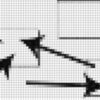
“The Ethics of Simple Solutions” – Martin Essemann
It was difficult not to understand Zarzycka’s presentation in relation to Google’s decision to fire two of its top ethical AI researchers earlier this year. Zarzycka brought up this controversial decision herself in trying to elaborate on her own difficulties and feelings about becoming a Googler, but she is, understandably, not in a position to…
Read more
“Can Business Ethics Change Academia?” – Minke ten Berge
During the first session within the Transmission in Motion Seminar of 2021/2022, Marta Zarzycka spoke about her transition from academia to being a User Experience (UX) Researcher in the commercial tech industry, specifically at Google Cloud. There are some profound differences between academia and the tech industry, but what spoke most to me during this…
Read more
“The Impact Remains” – Olga Efremova
The Transmission in Motion 2021-22 seminar series opened with a presentation from Marta Zarzycka on translating academic research on affect to user experience research. During her academic career at Utrecht University Zarzycka researched the role of digital photography in shaping collective Western consciousness through the representation of trauma. Drawing on her current work at Google,…
Read more
Transmission in Motion Seminar (2021-2022): “Practices of Translation”
This year’s Transmission in Motion seminar is about radical translation: not in the sense of (linguistic) translation from source to target, but in the sense of relational and transversal practices. In this latter sense, practices of translation affect all parties and perspectives that emerge from and participate in the process. Translation, then, happens in-between media,…
Read more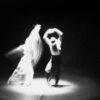
“Archiving Dance: The Irreducibility of Skill and Dynamism” – Danny Steur
Indulge me, very briefly, to share something about myself: I am not a dancer. Far from it, in fact; I am not a sportsy person at all, though I try to keep moving during a pandemic that has severely limited our options to go outside and move about the world. It seems best, in some…
Read more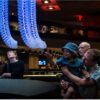
“Entangled Movement” – Naomi Tidball
For the final Transmission in Motion Seminar, participants embarked on a knowledge-transforming seminar on the transmission of dance mobility technology. The Seminar presenters, Suzan Tunca (ICK Amsterdam Dance Company) and Laura Karreman (Utrecht University) offer the seminar attendees insight into their focus of researching the development of digital applications and their role in dance/motion choreography….
Read more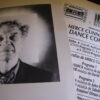
“Dancing with Mathematics” – Anthony Nestel
Laura Karreman starts Chapter 2 “Dance as Knowledge” of her PhD dissertation titled The Motion Capture Imaginary: Digital Renderings of Dance Knowledge (2017) with the following: “A Striking feature of the contemporary field of dance practice and research is the way in which motion capture technologies are increasingly applied in the effort to analyze, interpret…
Read more
“Metaphors for Movement Transmission: Imagination and Knowledge Production” – Eleonora Stacchiotti
The final Transmission in Motion seminar delved into the topic of dance notation and the exchange of knowledge related to dance choreography so that the session was about ways to transmit motion and how to make dance accessible as a type of knowledge. This blog post wants to be a short report of the meeting…
Read more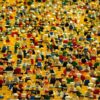
“How Will Our Body Adjust to a Post-Pandemic Reality?” – Polyniki Katrantsioti
Thinking about dance and its endurance through time, it is impossible not to think about how dancing is a part of our everyday lives; walking through the streets we are called to “dance” with other bystanders and perform carefully choreographed movements to avoid walking into them or the way we navigate ourselves through a busy…
Read more
“Prescription, Description and the Avenues of Transmission” – Hannah Harder
When artist and scholar Suzan Tunca brought up the importance of worldmaking in dance, it seemed to be evocative for a discipline seeped in western classicism. Using Nelson Goodman’s philosophical work Ways of Worldmaking (1978), Tunca describes that artistically, we behave by constitutively “rendering” our world. Instead of values of correctness, it is subjectivity that…
Read more
